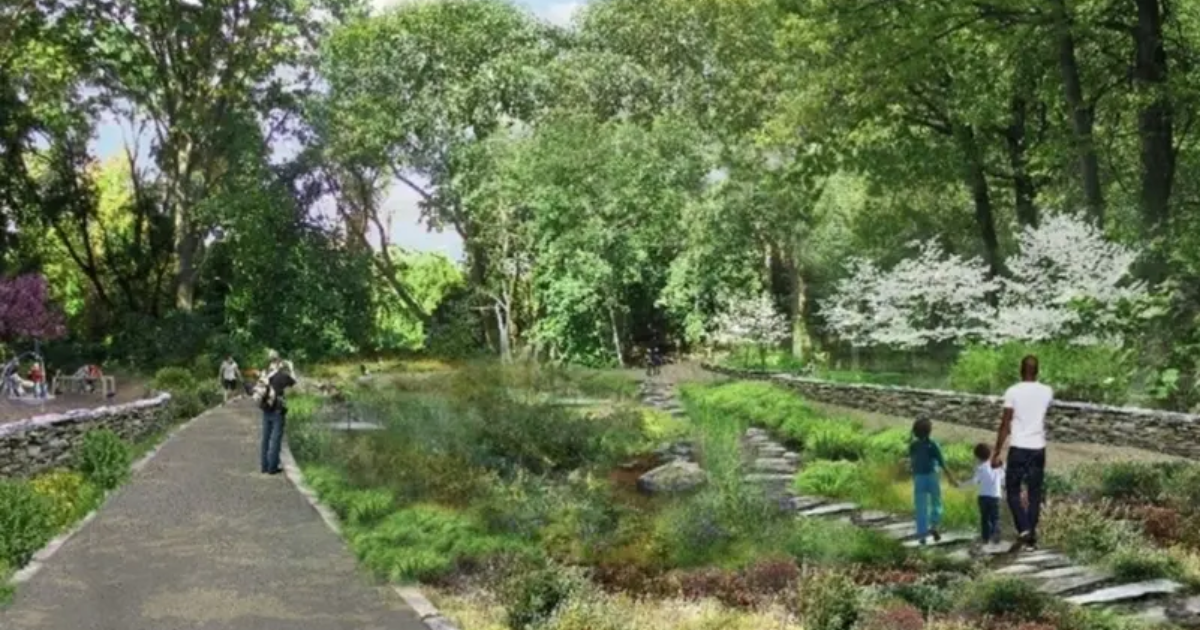Queens, New York, is about to get a lot greener, thanks to a whopping $117 million boost for the Queensway project. Mayor Eric Adams announced this exciting development, marking it as the largest grant received by his administration. This injection of funds will propel the completion of the Queensway’s second phase, extending the greenway by 1.3 miles into the scenic Forest Park area.
The Queensway, aptly named, is a transformative park project that repurposes an abandoned rail line, drawing parallels to Manhattan’s beloved High Line. This ambitious endeavor aims to create a vibrant urban oasis, providing much-needed green space for residents and visitors alike.
Sue Donoghue, the city’s parks commissioner, expressed enthusiasm for the project, highlighting its significance in fostering connections between neighborhoods while offering safe pathways for pedestrians and cyclists to enjoy the outdoors.
However, the journey towards realizing the Queensway hasn’t been without its controversies. Advocates have been divided, with some pushing for an alternative vision called the QueensLink, which would repurpose the Long Island Rail Road’s abandoned Rockaway Beach Branch line into a subway rail connection.
The debate between the two projects has been ongoing, with tensions even spilling over into recent discussions. State senators allocated $10 million for a QueensLink environmental review, underscoring the persistent rivalry between the two proposals.
Proponents of the QueensLink argue for a dual-purpose approach, advocating for the integration of parks and transit infrastructure along the rail line. They emphasize the importance of future-proofing the space to accommodate potential transit restoration, thereby fostering greater connectivity and economic growth for the borough.
On the other hand, the Queensway has found staunch support from Mayor Eric Adams, who kickstarted the project in 2022 with a $35 million investment for its initial phase. This phase saw the creation of a 5-acre park with nearly a mile of greenway in Forest Hills, laying the groundwork for the expansive vision of the Queensway.
Once completed, the Queensway will traverse through various neighborhoods, including Rego Park, Forest Hills, Glendale, Forest Park, Woodhaven, Richmond Hill, and Ozone Park, promising to be a cherished asset for the entire community.
As the Queensway project gains momentum with this substantial financial backing, it represents not just a transformation of physical space but also a testament to the power of community-driven initiatives in shaping the future of urban environments. With each step forward, Queens inches closer to realizing its own vibrant, green sanctuary—a testament to innovation, collaboration, and the enduring spirit of progress.
Source: QNS

